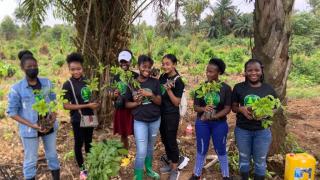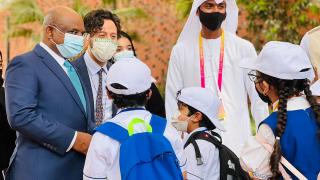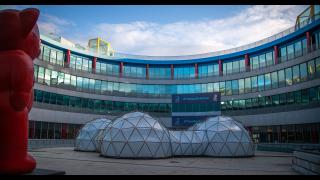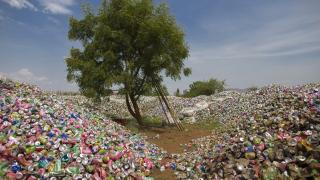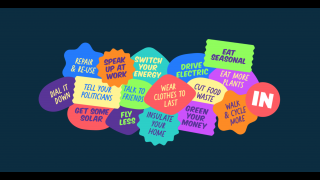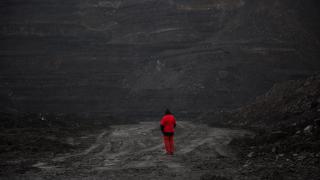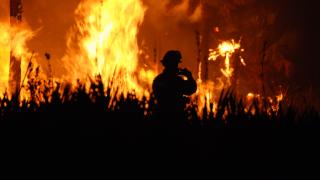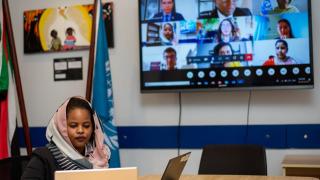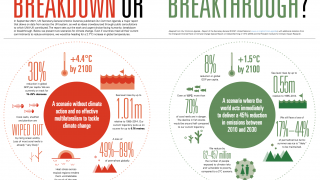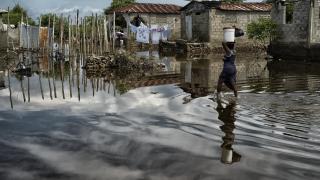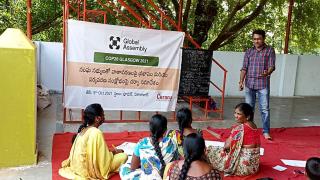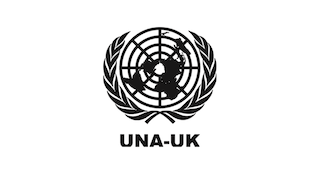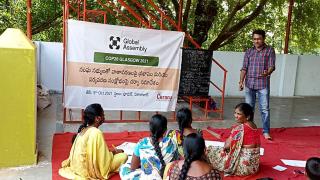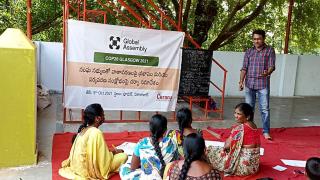
“The Global Citizens’ Assembly for COP26 is a practical way of showing how we can accelerate action through solidarity and people power,” said António Guterres, UN Secretary-General, at the launch of the world’s first Global Citizens’Assembly on 5th October 2021.
Citizens assemblies have been used around the world to create solutiuons to contentious issues such as waste management in Brasil, constitutional reform in Mongolia, environmental disaster management in Uganda, and famously, abortion and gay marriage in Ireland.
One of the many things that’s remarkable about citizens’ assemblies is that they tend to generate policies far more ambitious than decision-makers come up with alone.
The current wave of climate assemblies taking place in places such as Poland, India, Brazil, France, Germany, Denmark and the US are capturing public imagination like never before. Seventy per cent of French people knew about the Citizen Convention for Climate and of those, 62 percent supported the vast majority of its recommendations. This not only generated a powerful mandate for change but sent a shock wave around the whole French political system.
The Global Citizens’ Assembly for COP26 consists of two parts: the main Core Assembly and many smaller local Community Assemblies.
On 27 September, 100 people from around the world were chosen via lottery for the Core Assembly. An algorithm ensured both that anyone on earth could be selected and that they represent an accurate snapshot of the global population. In today’s world, where we are saturated with data, algorithms usually connect us with like-minded others who think as we do. The Global Assembly uses algorithms to do the opposite—to bring together diversity. This means that 60 percent of the Core Assembly come from Asia and 17 percent from Africa, half are women, and 70 percent earn $10 a day or less. We also include diverse points of view about climate; 32 percent of participants don’t think climate is a crisis—like the population the world over.
The Core Assembly Members met virtually on 7 October for the first session of 5 blocks of deliberation. They began a deep dive into the science, fairness and efficacy of climate action. Then, across unimaginable difference, they’ll develop proposals that will be delivered formally to world decision-makers at COP26.
At the same time anyone, anywhere can join the Global Assembly by attending or running a local Community Assembly, using the same resources as the Core Assembly, and then uploading their own proposals to the Global Assembly website, all of which will be presented to world leaders. Our hope is that eventually Community Assemblies will become an annual fixture of school curricula and the events calendars of offices, communities and places of worship.
The Global Assembly is made up of over 170 organisations in over 50 countries. For instance, in Socotra, an island off the coast of Yemen that is one of the world’s most isolated land masses, a women’s football club is serving as the perfect host for a Community Assembly; it has no political affiliation, is highly-trusted and serves community social needs, and thus offers impartiality.
While Global Assembly sits alongside COP26, it is independent of the UN and all governments. This is our prototyping year, and the intention is to establish a new permanent piece of global governance. It will scale over time from the initial 100 people at the Core to over 1,000; from hundreds of Community Assemblies to hopefully thousands, maybe millions.
The Covid-19 pandemic has shown us that, in the heat of a crisis, we can work together, bottom-up, to make massive changes in our collective behavior very quickly—but also that if we don’t, the consequences will be grim.
The Global Assembly network is on fire. In a world, where so many feel jaded, overwhelmed, and disillusioned, we’re tapping into an worldwide yearning for change rooted in community, agency, and action. The Global Assembly is not just about climate, it’s about installing a new governance operating system--one which anyone, especially you, is invited to join.
Get involved
Photo: Community Assembly in Vikarabad, Telangana, India. Credit: Global Assembly/Twitter

